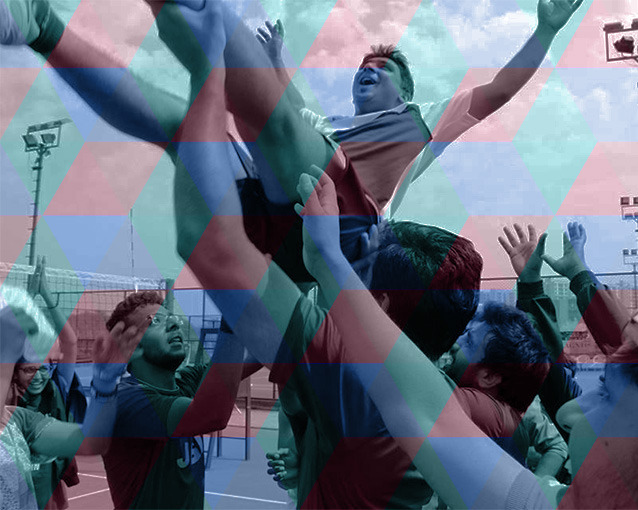I was recently introduced to the story of the Terezin Requiem, where in the concentration camp of Theresienstadt, around 150 people found rebellion against the Nazis through the music of Verdi. They were sent there to die, and eventually they did meet their deaths, with each of them knowing their ultimate destination of the infamous Auschwitz camp. But they, in a dank and dark basement, found not merely solace in music, but a fight. Before their deaths, with just a single record for reference and only a smuggled piano for accompaniment, they produced beautiful performances of Verdi’s Requiem. There’ s weren’t the wars of bullets or words, but the thunderous vocal orchestra of music was their weapon – their weapons were their voices, with the accompaniment of a single piano.
The architect of Terezin’s defiant Requiem was Rafael Schachter. Eventually, his choir was so good that they obtained approval from the camp administration themselves. The Nazi camp leaders, assured by the knowledge that each of the singers and the head musician would eventually be led to their demise, allowed them their productions, and permitted this music that was not a subtle resistance, but a high-pitched slap across the faces of every oppressor . The Nazis believed that memories would perish with death – death being a finality that cannot be argued with. But here we are, arguing with it. Requiem : the music that speaks of remembrance of the lost, the dead, the defeated, a tonal plea that one-day faith would be rewarded and judgement carried out. The Jews at Terezin, were singing their own requiem, and resisting it. I’m reminded of John Donne’s sonnet ‘Death Be Not Proud’,
“Death, be not proud, though some have called thee
Mighty and dreadful, for thou art not so;
For those whom thou think’st thou dost overthrow
Die not, poor Death, nor yet canst thou kill me.”
The judgement that those of the Terezin Requiem sang of wasn’t merely that of a religious East Wind, but of a preservation of beauty, of a people ready to summon up remembrance of things past. These were a defeated people, but they triumphed, for in our romantic customs of heroism, we remember defiance – we remember music.
In India, I look to the elderly. The older members of society who have lived, through the wars, the Partition, and their own universes of memories. Those individuals who are easiest ignored, most easily mocked, a remnant of ways of seeing we slowly forget. My words cannot describe them – their definition lives in their actions and their lifestyles. The buildings grow taller, the technology more accessible, the cars more stylish, the television sets get bigger, and people walk the roads wearing plastic in their ears and talking to themselves. But the elderly woman comes out of her home each morning, picks up the newspaper, reads it out loud to her grandchildren… She remembers the quirkiest memories, the crazy times of her life, the college life when romantic love was, as it is now, driven by what the movies showed us. They remember their mistakes, and observe the world around them with a smile, noticing the same patterns, and living in the wisdom of knowing what comes next.
George Steiner recounted a story to an interviewer once. He spoke of the time when writers were prosecuted, when books were being burnt, when people were caught between the devil and an incredibly deep blue see. His story was of Boris Pasternak, a writer, and he said,
“…in the Russian Writers’ Congress of ’37, in the blackness of the blackness, Boris Pasternak was told, “If you speak, we arrest you. If you don’t, we arrest you, as a sign of contempt.” Pasternak was tall, very handsome; he stood out in a crowd fantastically. On the third morning his friends said, “Boris, say something. They are going to arrest you, but say something. Give us something to remember, to live by.” When the moment came, Boris got up and spoke a number (the number 30). It took twenty seconds, maybe thirty, before two thousand people rose, holding hands, and began to recite Shakespeare’s sonnet of that number, of which Pasternak’s translation is a Russian classic, like Pushkin. He spoke out loud, (the first line of the sonnet) “When I summon up remembrance of things past,” and they didn’t dare touch him. That culture was never in ultimate danger. They remembered it, and nobody could take it away from them.”
This is the recurring tale, of the triumph of the defeated. Where spirit blooms, and stories are made. And in those stories lies their triumph, one which we, uphold and remember.
The terminally ill, the forgotten elders of our country, the amnesiacs, and those doomed to die – here are the most rebellious and important individuals. For they have not anything to lose, and possess in them the spirit of lifetimes. No more do they fight for themselves, because they know that they are defeated. They understand that nobody cares.
But they remember, and that’s more power than we’ll ever have. And one day when the youth of the world in their arrogance of modernity forget this, they’ll be there to rise up and remind us, to teach us a few lessons like our grandparents did. Trust me, they are the craziest and the greatest people existent. Like the best warriors who only joined the war when the foot soldiers were defeated, these people will arise at a time when innovation fails to provide meaning to our lives, and the meaningless is held up as gospel.
Forget the proletariat revolution. Ignore not the forgotten, forget not the triumphs of defeated people.

